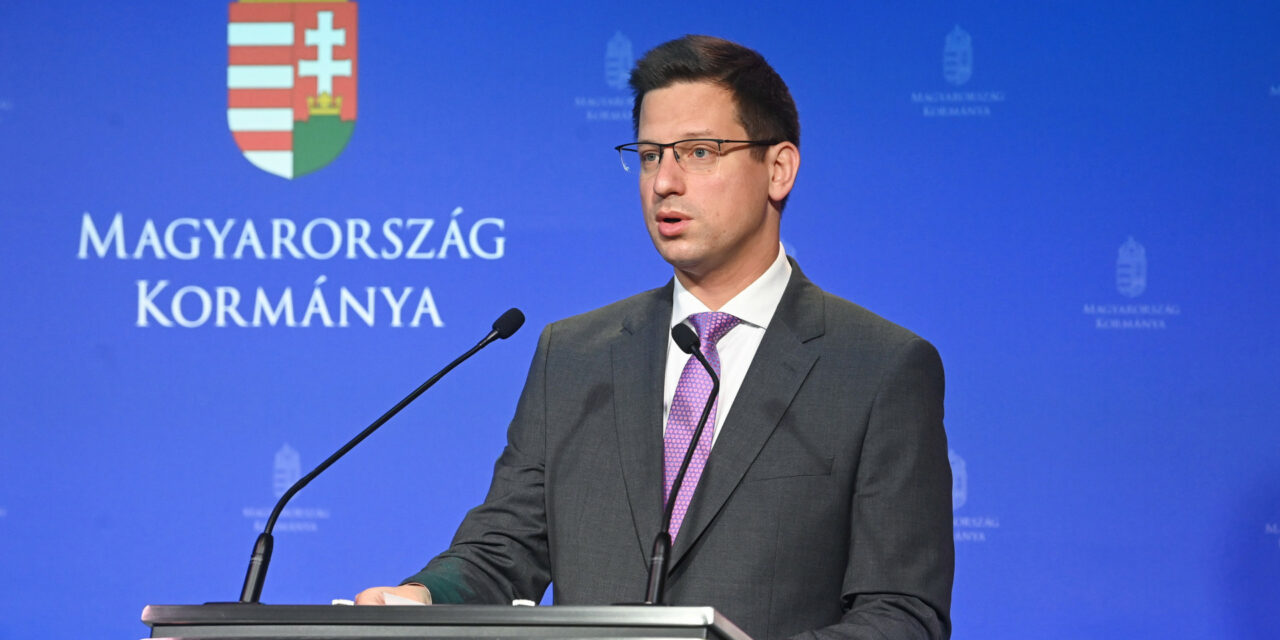In order to ensure the sustainability of utility reduction, as of August, anyone who consumes more than the household average will have to pay the excess consumption at the market price. The measure does not affect three quarters of households, the discount for large families remains.
There is an energy crisis in Europe; energy prices are rising because of the war in Ukraine, and in recent days it has become clear that there will not be enough gas in the countries of the European Union in the autumn-winter period.
The wartime energy prices and European energy supply problems also affect Hungary, which is why Prime Minister Viktor Orbán on Wednesday morning
convened the government cabinet, whose members are the ministers who lead the professional cabinets, in the Karmelita monastery, the Prime Minister's Press Office announced.
It seems that decisions were made in this regard by the afternoon, which were announced by Chancellor Gergely Gulyás at the extraordinary government briefing starting at 4:30 p.m. Szilárd Német also participated in the 2-hour press conference.
Important decisions were made, although it was not a government meeting, but a cabinet meeting - began Gulyás, who announced that the moment had come for the Hungarian government to declare an energy emergency. He stated that energy prices have increased fivefold in the past year due to the war and sanctions.
The government declares an energy emergency and adopts a seven-point package of measures that will take effect in August.
The 7 points:
Hungary is increasing domestic gas production from 1.5 billion cubic meters to 2 billion cubic meters.
The government authorized Péter Szijjártó to acquire additional gas supplies.
The government orders an export ban on energy carriers and firewood.
We will increase lignite production until the end of the year.
Restarting the blocks of the Mátra Power Plant.
In order to maintain safe power generation, they are initiating the maintenance of the Paks blocks.
Those who consume above the average are asked to moderate their consumption or pay the market price. The reduced gas and electricity prices remain in effect only up to the consumption of the average Hungarian household, who consumes more and pays the excess at the market price. Today, the average monthly consumption in Hungary is 210 kilowatt hours/month for electricity and 144 cubic meters/month for natural gas.
After that, Szilárd Németh took the floor. The government commissioner said that in order to maintain the utility reduction, it was necessary to declare an energy emergency. It is not possible for everyone to pay the reduced price indefinitely, so those who consume more than the average must pay the market price.
The government defends the utility reduction, but the utility reduction remains with regard to average consumption. The average consumption in the case of electricity is 2,523 kilowatt hours, and 1,729 cubic meters per year in the case of gas. "The electricity bill would be HUF 58,800 instead of HUF 7,750, while in the case of gas, more than HUF 121,000 would have to be paid instead of HUF 11,000," Szilárd Németh explained. "In the case of every family with three children, there is an extra 600 cubic meters of additional consumption," added Németh.
In response to questions, Gergely Gulyás made it clear: everything is being done to ensure that there is enough gas in the winter.
"Waste cannot be allowed anywhere, all alternative possibilities must be sought," added Gulyás, who was also asked about the kata.
Gulyás replied that the government does not give life advice until it is necessary. The last step will be if there is an energy restriction for the population. "The whole of Europe is afraid of recession, and to limit economic activity in such a situation would be a huge mistake," he stated.
Source: mandiner.hu
Featured image: MTI/Noémi Bruzák












